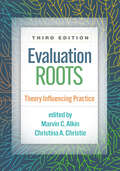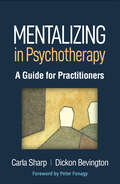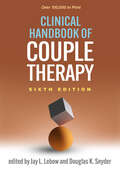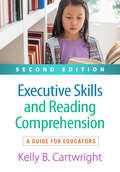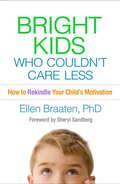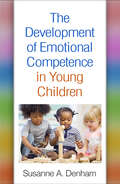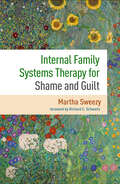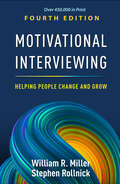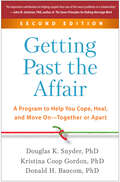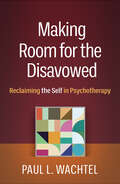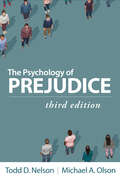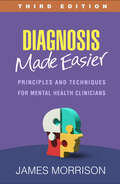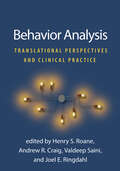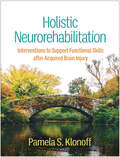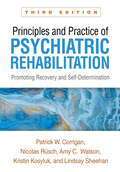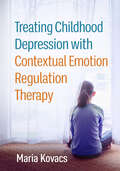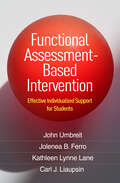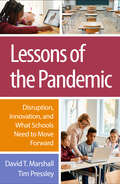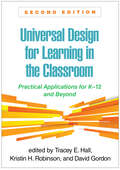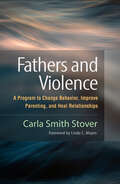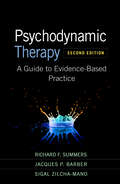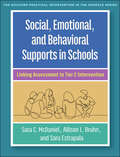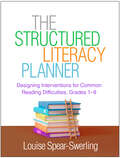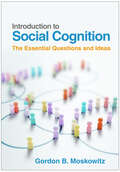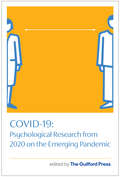- Table View
- List View
Evaluation Roots: Theory Influencing Practice
by Christina A. Christie Marvin C. AlkinShowing how evaluation practice looks when guided by theory, the third edition of the influential "theory tree" book is significantly revised with over 80% new material, including a greater focus on equity and theories over theorists. Chapters from leading authorities describe the goals of each theory; the type of evaluation for which it is appropriate (formative, summary formative, summative, adaptive); the size of the program for which it is most applicable; specific prescriptions; and observable actions that help to define the theory. Readers are given the tools to select suitable approaches for the size, contexts and stage of an evaluation and their own personal values. New to This Edition *Chapters on culturally responsive evaluation, Indigenous evaluation, and developmental evaluation. *Organized around theories rather than individual theorists. *Increased attention to practical applications, including a chapter distilling the goals, methods, and standards of evaluations based on each theory. *Case study chapter on the role of theory in evaluation policy.
Mentalizing in Psychotherapy: A Guide for Practitioners (Psychoanalysis and Psychological Science)
by Carla Sharp Dickon BevingtonHow can therapists help clients reflect more deeply on their own--and other people's--thoughts and emotions? How can the therapeutic relationship be leveraged effectively to create change? This concise book guides therapists of any orientation to incorporate innovative mentalization-based strategies into assessment and intervention. Complex ideas are clearly explained and illustrated with extensive session transcripts and vignettes. Ways to help clients struggling with dysregulated emotions and behavior are highlighted. Compelling topics include the role of mentalization difficulties in personality disorders, special concerns in working with adolescents, and how clinicians can improve their own mentalizing capacities.
Clinical Handbook of Couple Therapy
by Jay L. Lebow Douglas K. SnyderNow in a significantly revised sixth edition with 70% new material, this comprehensive handbook has introduced tens of thousands of practitioners and students to the leading forms of couple therapy practiced today. Prominent experts present effective ways to reduce couple distress, improve overall relationship satisfaction, and address specific relational or individual problems. Chapters on major approaches follow a consistent format to help readers easily grasp each model's history, theoretical underpinnings, evidence base, and clinical techniques. Chapters on applications provide practical guidance for working with particular populations (such as stepfamily couples and LGBT couples) and clinical problems (such as intimate partner violence, infidelity, and various psychological disorders). Instructive case examples are woven throughout. New to This Edition *Chapters on additional clinical approaches: acceptance and commitment therapy, mentalization-based therapy, intergenerational therapy, socioculturally attuned therapy, and the therapeutic palette approach. *Chapters on sexuality, older adult couples, and parents of youth with disruptive behavior problems. *Chapters on assessment and common factors in couple therapy. *Chapters on cutting-edge special topics: relationship enhancement, telehealth interventions, and ethical issues in couple therapy.
Executive Skills and Reading Comprehension: A Guide for Educators
by Kelly B. CartwrightThis pioneering book is now in a revised and expanded second edition featuring the latest neuroscientific knowledge and instructional strategies. Kelly B. Cartwright provides a teacher-friendly explanation of executive skills--such as planning, organization, cognitive flexibility, and impulse control--and their role in reading comprehension. Detailed examples illustrate how each skill is deployed by strong comprehenders and ways to tailor instruction for students who are struggling. The companion website features reproducible planning and assessment forms from the book as well as supplemental card sorts to teach and assess cognitive flexibility, all ready to download and print in a convenient 8 1/2" x 11" size. New to This Edition *Updated throughout with advances in theory, research, and instruction. *Chapter on word recognition, with particular attention to dyslexia. *Information on the development of the brain's reading network. *Expanded emphasis on oral language comprehension. *Appendix of intervention studies; online-only supplement with card sorts to teach and assess cognitive flexibility.
Bright Kids Who Couldn't Care Less: How to Rekindle Your Child's Motivation
by Ellen Braaten&“He&’s so smart, but he&’s no longer interested in school--or any 'offline' activities.&” &“She used to love sports, but now she just mopes around.&” &“My kid has turned into such a slacker!&” Sound familiar? If you're wondering how your bright, motivated little kid became such an unmotivated adolescent, you're not alone. Fortunately, help is at hand! In this compassionate guide, psychologist and learning expert Ellen Braaten explains that kids who have lost the will to do anything (other than play video games) need more than simple encouragement or the &“right&” school, teacher, or coach to get back on track. Instead, Dr. Braaten helps you understand the myriad biological, psychological, and social factors that affect motivation, and get to know your own child's unique strengths, weaknesses, and personality traits better. Gain vital tools for tackling the motivational problems that are so pervasive today--and build a plan to boost your child&’s confidence and engagement in life.
The Development of Emotional Competence in Young Children
by Susanne A. DenhamThis engaging, authoritative text synthesizes a vast body of research on how young children develop the ability to understand, express, and manage their emotions, as well as the impact of these capacities on relationships, school readiness, and overall well-being. Illustrated with vivid vignettes, the book explains specific ways that parents, teachers, and education systems can foster or hinder emotional competence, and reviews relevant assessments and interventions. Compelling topics include emotion regulation as both product and process, cultural variations in emotion socialization, the expression of empathy and self-conscious emotions, risk factors for delays in emotional development, and connections between emotional competence and social–emotional learning (SEL). Almost entirely new, this book replaces Susanne A. Denham's influential earlier work, Emotional Development in Young Children.
Internal Family Systems Therapy for Shame and Guilt
by Martha SweezyRich in clinical examples, this book offers a fresh perspective on the roles of shame and guilt in psychological distress and presents a step-by-step framework for treatment. Martha Sweezy explains how the principles of Internal Family Systems (IFS) therapy are ideally suited to helping trauma survivors and other clients who struggle with debilitating shame to understand and heal psychic parts wounded in childhood. Annotated case illustrations show and explain IFS techniques in action. Other useful features include boxed therapeutic exercises, decision trees, and pointers to help therapists avoid or overcome common pitfalls.
Motivational Interviewing: Helping People Change and Grow (Applications of Motivational Interviewing)
by William R. Miller Stephen RollnickNow in a fully rewritten fourth edition, this is the authoritative presentation of motivational interviewing (MI), the powerful approach to facilitating change. It has been updated and streamlined to be even more user-friendly as a practitioner guide and course text. MI originators William R. Miller and Stephen Rollnick elucidate the four tasks of MI--engaging, focusing, evoking, and planning--and vividly demonstrate what they look like in action. A wealth of vignettes and interview examples illustrate the dos and don'ts of successful implementation in diverse contexts. The book reviews the evidence base for the approach and covers ways to assess the quality of MI. The companion website provides reflection questions, annotated case material, and additional helpful resources. New to This Edition *Most of the book is entirely new. *Addresses the breadth of MI applications not only in counseling and psychotherapy, but also in health care, education, coaching, management, and other contexts. *Discusses delivering MI remotely, simple versus complex affirmations, strategic use of directional questions, ethical considerations, and other new or expanded topics. *Increased emphasis on using MI throughout a client's process of change and growth, not just in the preparatory stage. Pedagogical Features *New or updated online materials, including reflection questions and annotated cases. *Key points at the end of each chapter. *"Personal Perspective" and "For Therapists" boxes in every chapter. *Extensive glossary. *New self-assessment tool that targets the component skills of MI. This book is in the Applications of Motivational Interviewing series, edited by Stephen Rollnick, William R. Miller, and Theresa B. Moyers.
Getting Past the Affair: A Program to Help You Cope, Heal, and Move On--Together or Apart
by Douglas K. Snyder Kristina Coop Gordon Donald H. Baucom"How could my partner have done this?" "What was my role?" "Can this relationship be saved?" Discovering that your partner has had an affair can feel like an earthquake. Long after the first jolt, the emotional aftershocks can make it hard to be there for your family, go about your daily business, and think clearly about your options. Where can you turn for help? From award-winning couple therapists, this compassionate guide has already provided support and expert advice to tens of thousands of readers. Updated throughout, the second edition confronts the myriad challenges facing couples today. Drawing on the latest research, the authors share vivid stories of diverse partners struggling with infidelity in all its forms--sexual or emotional, in-person or online. Learn how to process what happened, cope with anger and mistrust, and map a way to move forward, whether separately or together.
Making Room for the Disavowed: Reclaiming the Self in Psychotherapy
by Paul L. WachtelIn this uniquely integrative book, Paul L. Wachtel describes powerful clinical strategies to make room for aspects of the self that were sidetracked in the course of development. Wachtel explores how early attachment experiences can lead people to turn away from certain thoughts and feelings, building a sense of self and ways of interacting on only a limited range of adaptive resources. His approach draws on psychodynamic, humanistic, systemic, and acceptance-centered cognitive-behavioral perspectives, as well as attention to the impact of race, class, and culture. Filled with rich case material, the book illuminates how a therapeutic approach anchored in the present can help heal the wounds of the past.
The Psychology of Prejudice
by Todd D. Nelson Michael A. OlsonAddressing core questions about prejudice and stereotyping--their causes, consequences, and how to reduce them--this noted text is now in a thoroughly revised third edition with 50% new material. Written in an engaging, conversational style, the book brings social-psychological theories and research to life with compelling everyday examples. The text explores the personal and societal impacts of different forms of prejudice. Students learn about the cognitive, emotional, motivational, contextual, and personality processes that make stereotyping and prejudice more (or less) likely to occur. The book reviews anti-bias interventions and critically evaluates the evidence for their effectiveness. Every chapter concludes with an instructive glossary and discussion questions. New to This Edition *Full chapter on implicit prejudice. *Chapters on anti-gay and anti-fat prejudice. *New or updated discussions of timely topics: how children develop prejudice, structural racism, benevolent versus hostile sexism, how contact reduces prejudice, and more.
Diagnosis Made Easier: Principles and Techniques for Mental Health Clinicians
by James MorrisonThe third edition of this incisive practitioner resource and course text--updated for the DSM-5 Text Revision (DSM-5-TR)--takes the reader step by step through diagnostic decision making in mental health. Guidelines are presented for evaluating information from multiple sources, constructing a wide-ranging differential diagnosis, creating a safety hierarchy, and using decision trees to derive a valid working diagnosis. The book addresses specific issues in diagnosing the conditions most often seen in mental health practice, with an emphasis on how diagnosis informs effective treatment. More than 100 vivid vignettes illustrate the diagnostic process and allow readers to practice their skills. New to This Edition *Revised throughout for DSM-5-TR, including the new diagnosis of prolonged grief disorder. *Chapter on eating and sleeping disorders, including new decision trees. *New and updated vignettes and suggested readings.
Behavior Analysis: Translational Perspectives and Clinical Practice
by Henry S. Roane Andrew R. Craig Valdeep Saini Joel E. RingdahlThis is the first comprehensive volume to bridge the gap between the science of behavior and applied behavior analysis (ABA). The book demonstrates how laboratory research informs real-world interventions to facilitate behavior change, and vice versa. Most of the chapters are written by researcher–clinician collaborators, who highlight commonalities and differences in the ways they conceptualize behavior and collect, analyze, and use data. Chapters present translational perspectives on conditioning, reinforcement, extinction, choice, verbal behavior, and more. Ethical considerations in translational research are explored. Training in foundational knowledge is a key requirement for behavior analyst certification, making this a needed resource for current and future ABA practitioners.
Holistic Neurorehabilitation: Interventions to Support Functional Skills after Acquired Brain Injury
by Pamela S. KlonoffHighly practical and comprehensive, this book provides a multimodal framework for helping patients with acquired brain injuries to identify and achieve meaningful functional goals in the home and community. In a convenient large-size format, the volume features rich case examples and interdisciplinary tools and strategies. Post-acute cognitive, physical, communication, emotional, vocational, interpersonal, family, and quality-of-life domains are all addressed, using state-of-the-art restorative and compensatory approaches. Coverage includes both individual and group therapies. Fifty reproducible forms and handouts can be photocopied from the book or downloaded from the companion website. The website also features a supplemental chapter on efficacy and outcomes research in neurorehabilitation, appendices with helpful resources, color versions of selected figures, and more.
Principles and Practice of Psychiatric Rehabilitation: Promoting Recovery and Self-Determination
by Patrick W. Corrigan Nicolas Rüsch Amy C. Watson Kristin Kosyluk Lindsay SheehanThe leading text and go-to practitioner resource on psychiatric rehabilitation is now in a thoroughly revised third edition, bringing readers up to date on current ideas, findings, and evidence-based best practices. The expert authors present the knowledge needed to help adults with psychiatric disabilities develop their strengths and achieve their life goals. The book describes effective ways to assess personal needs and aspirations; integrate medical and psychosocial interventions; implement supportive services in such areas as housing, employment, education, substance use, and physical health; and combat stigma and discrimination. "Personal Examples" throughout the text share the experiences of diverse individuals recovering from serious mental illness. New to This Edition *Increased attention to social determinants of health--for example, the impact of race, ethnicity, gender identity, sexual orientation, poverty, and criminal justice involvement. *Chapter on developing more equitable, culturally competent services. *Expanded coverage of physical health and wellness. *New and expanded discussions of community-based participatory research, peer recovery support providers, and other timely topics.
Treating Childhood Depression with Contextual Emotion Regulation Therapy
by Maria KovacsThis book is the authoritative presentation of contextual emotion regulation therapy (CERT), an innovative intervention expressly designed for depressed children ages 7–13 and their parents. CERT is grounded in decades of research on the development of emotion regulation and on "mood repair" difficulties as a risk factor for clinical depression. Step by step, Maria Kovacs describes ways to teach children skills to modulate feelings of sadness and distress and break the hold of depression symptoms. Extensive therapist, parent, and child exchanges illustrate key treatment principles. Clinicians learn how to structure CERT sessions and implement personalized social–interpersonal, cognitive, behavioral, problem-solving, and psychoeducational interventions. Reproducible tools in the appendices--including forms, posters, and a parent manual--can be downloaded and printed in a convenient 8 1/2" x 11" size.
Functional Assessment-Based Intervention: Effective Individualized Support for Students
by John Umbreit Jolenea B. Ferro Kathleen Lynne Lane Carl J. LiaupsinFrom noted authorities, this book presents a comprehensive approach to designing and implementing evidence-based Tier 3 behavior interventions for K–12 students. The authors' functional assessment-based intervention (FABI) process has been supported by multiple peer-reviewed studies conducted in authentic educational environments. Step by step, chapters spell out proven methods to define target behaviors, determine the function of the undesirable behavior, identify appropriate replacement behaviors, and deliver and monitor intensive interventions. Illustrated with real-world case examples, the book shows how to embed FABI within a school's integrated tiered system of supports. Guidance for scaling FABI district- and statewide is also provided. Ethical issues, professional standards, equity concerns, and cultural and linguistic considerations are addressed throughout. In a convenient large-size format, the book includes reproducible checklists and forms that can also be downloaded for ease of use.
Lessons of the Pandemic: Disruption, Innovation, and What Schools Need to Move Forward
by David T. Marshall Tim PressleyThe impacts of the COVID-19 pandemic on K–12 education have been pervasive and profound. This engaging book concisely outlines the current crisis in schools in the core areas of student learning, student and teacher mental health, and teacher burnout. Synthesizing original research, David T. Marshall and Tim Pressley offer in-depth descriptions of the disruptions caused by prolonged school closures and remote instruction. They also identify some positive changes, such as increased use of online resources and technology, flexible work models, and greater attention to social and emotional learning. Sharing key findings, concrete examples, and teachers&’ own voices about what they need to succeed, the book provides clear recommendations for moving schools forward effectively and sustainably.
Universal Design for Learning in the Classroom: Practical Applications for K-12 and Beyond
by Tracey E. Hall Kristin H. Robinson David GordonThe Universal Design for Learning (UDL) framework has grown from its origins in special education to being widely used to support all students, making the fully rewritten second edition of this indispensable guide more relevant than ever. Filled with practical, vivid examples and tips, the book demonstrates the power of UDL when applied to particular content areas. Specific teaching ideas are presented for literacy, STEM, project-based learning, career and technical education, and the arts. The editors and contributors describe practical ways to create thriving learning environments that use UDL to meet diverse learners' needs. New to This Edition *Entirely new content. *Coverage expanded from elementary and middle grades to secondary and beyond. *Innovative approaches embracing the growth of UDL and the ubiquity of digital technologies in today&’s classrooms. *Spotlight on issues of equity and inclusion. *Chapters on antiracism, social–emotional learning, career and technical education, journey mapping, and curriculum design. *Compelling discussions of advances in UDL principles and research directions.
Fathers and Violence: A Program to Change Behavior, Improve Parenting, and Heal Relationships
by Carla Smith StoverThis highly accessible book presents a new approach to treating men who use violence against their partners and/or children. The Fathers for Change (F4C) program has a unique focus on fostering fathers' accountability and reflective functioning, and repairing father–child relationships. Grounded in theory and research, it addresses a key need for parents who want to stay together or coparent successfully in the aftermath of violence, while prioritizing all family members' safety. Clinicians learn how to implement each component of F4C, from assessment to individual-focused work to coparent and family sessions, if appropriate. Illustrative case vignettes are featured throughout. An appendix provides 32 reproducible forms, worksheets, and handouts that can be downloaded (many in a fillable format) and printed as needed.
Psychodynamic Therapy: A Guide to Evidence-Based Practice
by Richard F. Summers Jacques P. Barber Sigal Zilcha-ManoFirmly grounded in contemporary clinical practice and research, this pragmatic guide for professionals and students is now in a revised and expanded second edition. The book explains the theory underlying psychodynamic approaches and lays out a model for understanding psychopathology. Vivid case examples demonstrate how to tailor psychodynamic therapy effectively for individual patients. The authors provide a framework for diagnosing the patient&’s core psychodynamic problem and engaging the most useful mechanisms of change, using an integrative approach. Special topics include remote and hybrid treatment, combining therapy with psychopharmacology, and working with couples and families. New to This Edition *Incorporates cutting-edge research on psychotherapy process and mechanisms of change. *Chapter on telepsychotherapy, including clear recommendations for practice. *More attention to the social determinants of health--the psychic effects of adversity and various forms of oppression. *New and revised case examples, with diversity in age, gender, race, culture, and sexual identity. See also Practicing Psychodynamic Therapy: A Casebook, edited by Summers and Barber, which features 12 in-depth cases that explicitly illustrate the approach in this book.
Social, Emotional, and Behavioral Supports in Schools: Linking Assessment to Tier 2 Intervention (The Guilford Practical Intervention in the Schools Series)
by Sara C. McDaniel Allison L. Bruhn Sara EstrapalaMeeting a critical need, this accessible guide addresses the "whats," "whys," and "how-tos" of developing and implementing effective Tier 2 social, emotional, and behavioral supports. The book provides explicit steps for identifying K–12 students who could benefit from Tier 2, matching evidence-based interventions to student needs, and making individualized, data-based decisions regarding adapting, fading, or intensifying supports. Chapters review exemplary interventions in the areas of conduct, self-regulation, social issues, emotional issues, and co-occurring academic and social–emotional–behavioral needs. The place of Tier 2 in schoolwide positive behavioral interventions and supports (PBIS) is explained, and keys to implementation fidelity are highlighted. In a large-size format for easy photocopying, the book includes 23 reproducible forms and checklists that can also be downloaded and printed. This book is in The Guilford Practical Intervention in the Schools Series, edited by Sandra M. Chafouleas.
The Structured Literacy Planner: Designing Interventions for Common Reading Difficulties, Grades 1-9
by Louise Spear-SwerlingStructured Literacy (SL) approaches are increasingly recognized as the gold standard for teaching struggling readers. This highly practical book walks educators through designing SL interventions for students with common types of reading difficulties--word reading, comprehension, or a combination of both. Louise Spear-Swerling offers tools for assessing students' reading profiles and tailoring SL to their needs. In a convenient large-size format, the volume is packed with case studies, sample lesson plans addressing both early and advanced stages of reading, instructional activities, and application exercises for teachers. A chapter on English language structure presents essential foundations for implementing SL effectively. The companion website features a knowledge survey about language structure (with answer key), as well as downloadable copies of the book's 14 reproducible forms. See also Louise Spear-Swerling's edited volume, Structured Literacy Interventions: Teaching Students with Reading Difficulties, Grades K–6, which surveys SL interventions across all components of literacy.
Introduction to Social Cognition: The Essential Questions and Ideas
by Gordon B. MoskowitzWhy are first impressions so powerful? How do we &“know&” what others are like when we cannot read their minds? How can scientists measure biases that people do not want to admit--or do not know they have? This engaging text delves into social cognition by exploring major questions in the field through an everyday lens. Students are introduced to core concepts and processes pertaining to how people come to know themselves and understand the behavior of others. Classic and contemporary findings and experimental methods are explained. The text connects the research to pressing contemporary problems--the roots of political polarization, why even rational people fall prey to misinformation, and the best ways to reduce prejudice. Boxed definitions of key terms are included throughout.
COVID-19: Psychological Research from 2020 on the Emerging Pandemic
by The Guilford PressThis book presents a range of research on COVID-19 and mental health from the earliest days of the pandemic. It features selected 2020 articles from the Journal of Social and Clinical Psychology and Psychodynamic Psychiatry. The book explores how the pandemic affected mental health providers, their practices, and their patients. Topics include: *The effects of social distancing on social engagement. *Coping with the pandemic among people with depression and anxiety. *Whether political orientations align with coping mechanisms. *Social media use and loneliness among young adults. *How service delivery and clinical training were challenged by--and responded to--the unfolding crisis. Whether addressing the isolation of those early days or the realities of providing much-needed psychiatric care, this book highlights key findings and research directions that continue to shape our thinking about the pandemic today.
